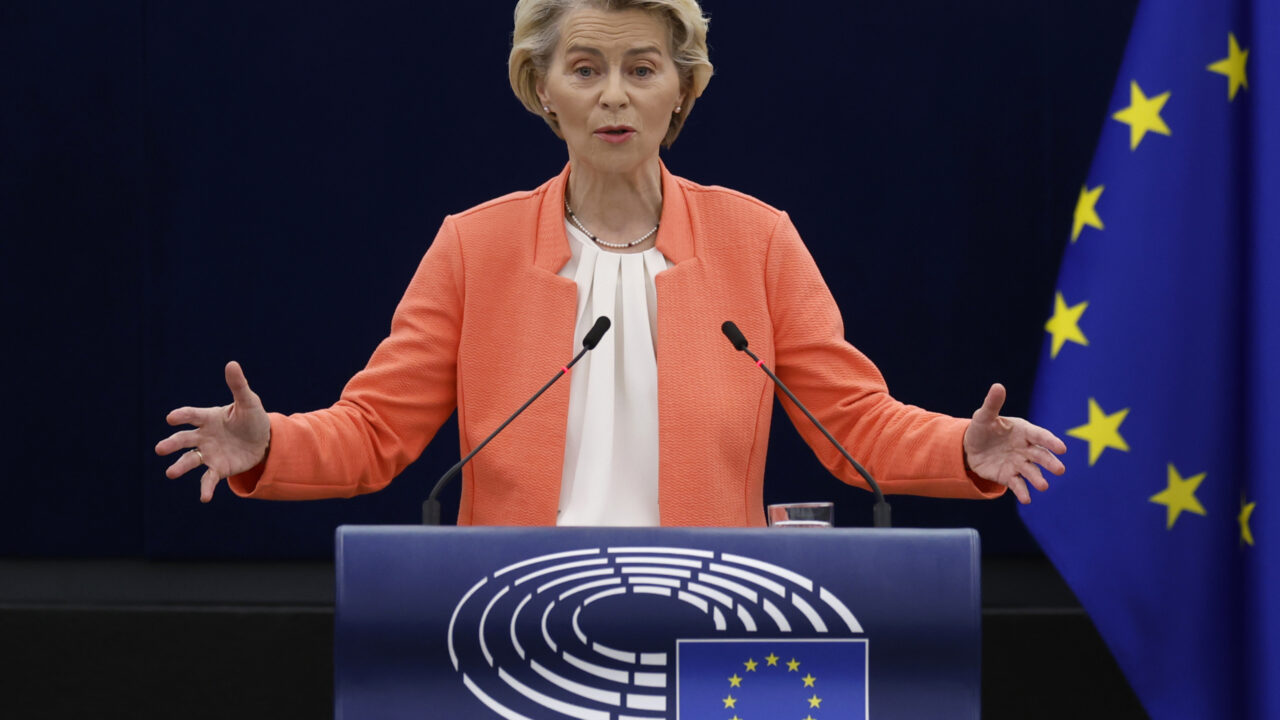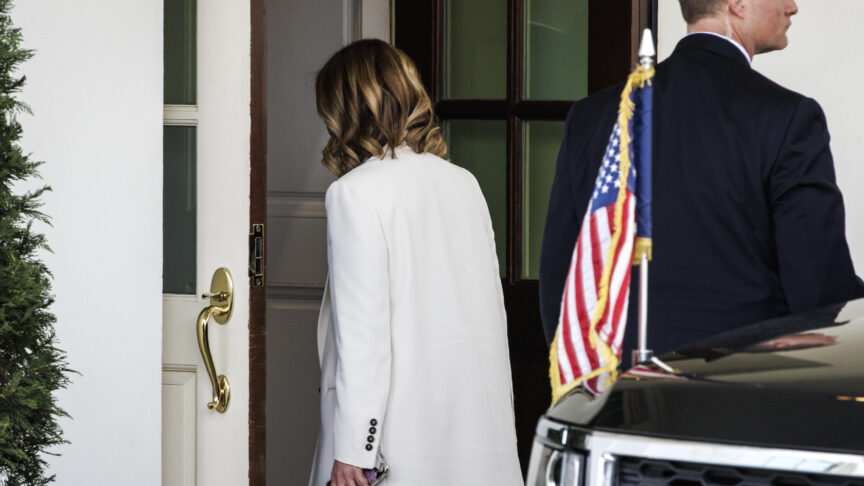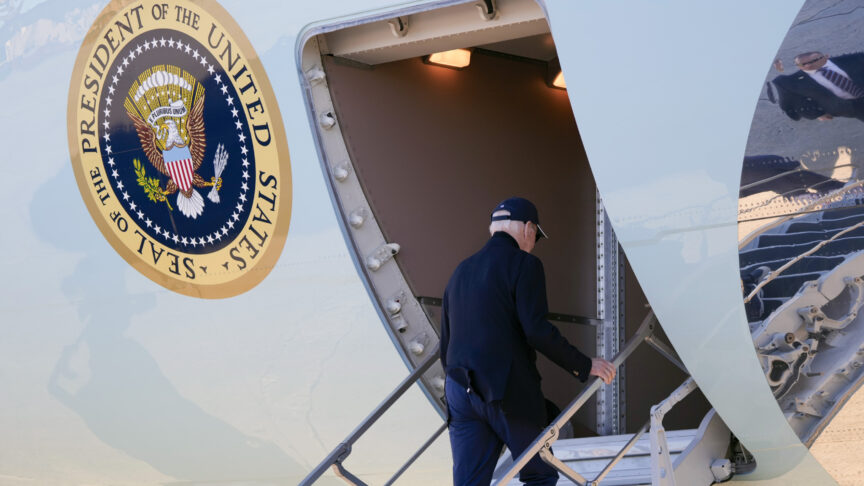Rescue mission: Von der Leyen’s call of history and the rules-based global order
Ursula von der Leyen’s state of the EU address was defensive in tone – but one part of it could prove groundbreaking
The headline may have been bold – a demand for the European Union to answer the “call of history” – but Ursula von der Leyen’s state of the EU address this week was largely defensive in substance.
The tone of this speech was very much of a European Commission president defending her record as she approaches the end of her mandate. Von der Leyen claimed to have built a geopolitical commission that could face up to global challenges from migration, to security, to navigating US-China competition. She lauded the EU’s ability to keep the green transition more or less on course through geopolitical sea changes as Europe sought to decouple from energy dependence on Russia, through skyrocketing inflation, and through responding to covid-19. She argued that the much-criticised Global Gateway – a policy that was launched in 2021 to rival China’s Belt and Road Initiative and marshal the EU’s collective weight in more strategic investments across the world – was making a real difference in Latin America, south-east Asia, and across Africa, as she had ‘’seen it with her own eyes’’.
But the speech’s tone also suggested the EU itself was on the defensive. Behind her calls for the bloc to take the necessary steps to agree a migration pact (her “let’s get this done” hauntingly echoing Angela Merkel’s “wir schaffen das” in 2015, in a very different political moment) or to move enlargement forward to a union of 30 members and more, was the implication that the EU needs to take these steps because the world is in such a dangerous place. Less than a year until the European Parliament elections, her speech did nothing to leave behind the politics of fear that has been driving a nationalist, defensive shift across EU member states in recent years.
As expected, her state of the EU left open the question of which role she was putting herself forward for with this speech. Some will read the security framing – the references to the need to enhance economic security, to put in place “guardrails”, and to manage threats of all kinds from AI and misinformation, to military and climate matters – as a bid for the top job at NATO. Others may read the almost checklist approach to all aspects of the commission’s mandate as a bid for a second term as president.
Yet, despite the lack of clarity over where she might go next, von der Leyen did make clear what she thinks Europeans should be concerned about. Whereas her speeches in previous years called for Europeans to draw together, her motif in 2023 was that the biggest challenges Europe faces come from without rather than within. In a fiercely competitive world, European companies, jobs, and livelihoods are under threat from unfair trade practices – players such as China flooding the market with heavily subsidised green tech. Her signature announcement that has excited the most discussion in immediate media reaction was the launch of an anti-subsidy investigation into electric vehicles from China. Rightly so, because, within this announcement, the commission president delivered perhaps her strongest message of all – and one that, though it again sounds defensive, could in fact be groundbreaking.
Von der Leyen’s motif in 2023 was that the biggest challenges Europe faces come from without rather than within
EU member states are increasingly divided over whether to simply throw their lot in with the subsidisation approach of the United States, which is now investing heavily in protecting its companies to compete with China’s method of greening its economy. Alternatively, there are strong calls to fight back and re-lay a fairer playing field. But with this measure and the promises around it, von der Leyen suggested that for the remainder of her mandate she would explore the latter. She argued for the rules-based system to become fairer and distribution more equal, describing it as essential to the EU’s DNA. And just as this summer’s EU economic security strategy called for the bloc to work with the broadest possible range of partners who share our interests and concerns, she underlined the need to work with old and new partners alike to try to achieve this. She called emerging economies “essential allies in building a cleaner, safer, and more prosperous world”, and she expressed pride at the support that the EU’s “derisking, not decoupling” approach has found from key partners. Middle powers were present too in her references to free trade agreements inked and forthcoming in 2023 – from Mexico, to Chile, to Australia, to Kenya.
Her logic is sound: in a deeply interconnected world, Europeans need a strategic approach to managing their interdependence, but as a union with a single market at its core, they can only achieve this within a rules-based system. Yet the European policy elite has been rapidly losing faith in this logic as they turn increasingly on the defensive in light of other global powers creating their own rules. If von der Leyen can steel European policymakers’ resolve to believe a rules-based system is still possible – and indeed, as one of the most crucial supports to Europe’s competitiveness over the long term, worth fighting for – then she may start to restore their faith. Perhaps, more than all the grander words in the other parts of her speech, this will be her most significant answer to the “call of history” in an age of interdependence. The most progressive approach may still emerge from summoning the political courage not to simply go with the current flow, but to defend the fundamentals of the international system that has served us over recent decades.
The European Council on Foreign Relations does not take collective positions. ECFR publications only represent the views of their individual authors.



